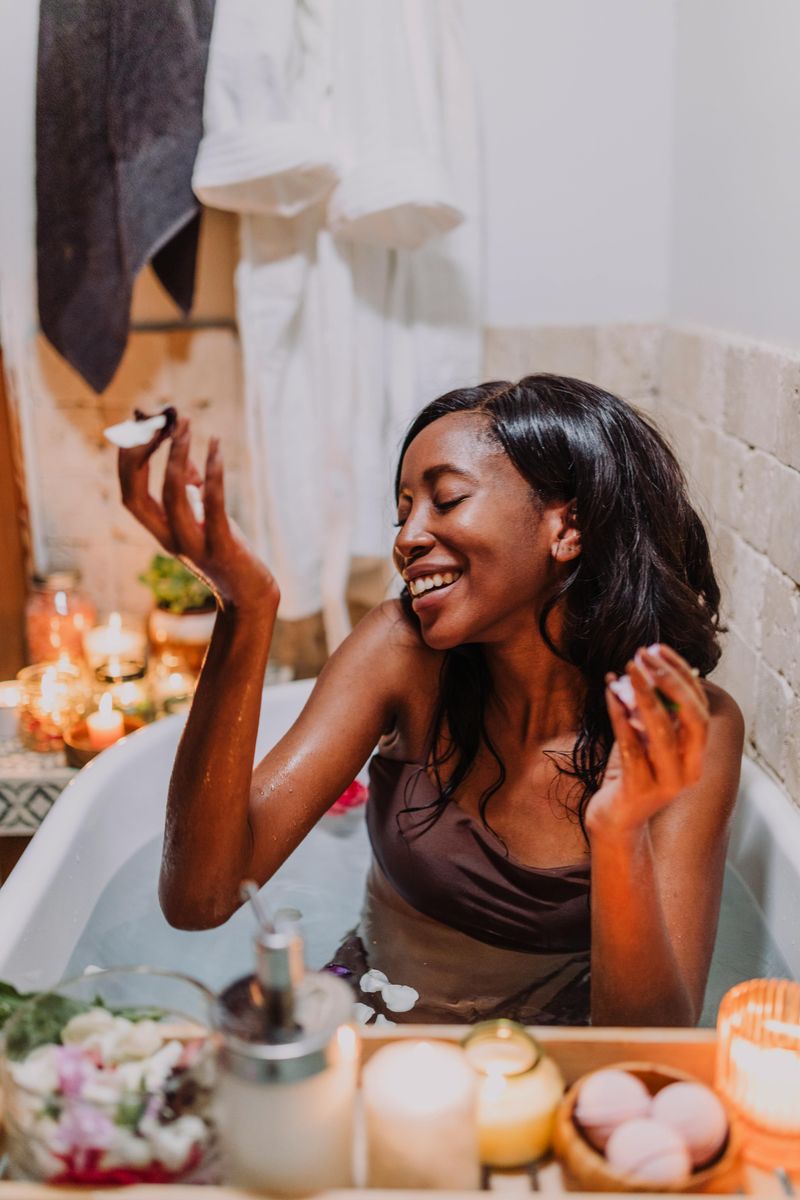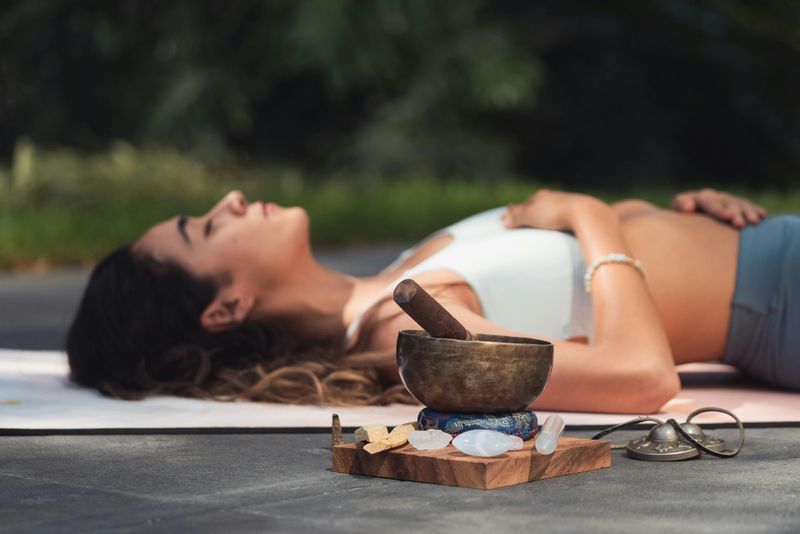Taking care of yourself isn’t selfish – it’s necessary. When you fill your own cup first, you actually have more to give others. The trick is finding that sweet spot where self-love doesn’t turn into shutting people out. Learning to honor your needs while staying connected to those you care about creates healthier relationships all around.
1. Set Healthy Boundaries That Respect Everyone
Boundaries aren’t walls—they’re more like fences with gates. Good boundaries protect your energy and time while still allowing meaningful connections. Start by identifying what feels uncomfortable or draining in your relationships.
Communicate these limits clearly but kindly: “I need some alone time tonight” works better than “Leave me alone!” Remember that healthy boundaries go both ways—respect others’ limits too.
When someone crosses a line, address it promptly without blame. “When you call after 10pm, I feel anxious because that’s my wind-down time. Could we talk earlier?” This approach honors both your needs and the relationship.
2. Make Self-Care a Non-Negotiable Priority
Self-care isn’t just bubble baths and chocolate—it’s meeting your basic needs so you can show up fully in life. Schedule regular appointments with yourself for rest, movement, nourishment, and activities that recharge your spirit.
The magic happens when you treat these appointments as seriously as you would any important meeting. No canceling on yourself because someone else wants your time! Yet being flexible matters too.
Share your self-care routine with loved ones so they understand its importance. “My morning walk keeps me centered all day” helps them see how your self-care ultimately benefits your relationships, not just you.
3. Speak Your Truth with Kindness
Honesty without compassion is just cruelty in disguise. When expressing needs or feelings, use “I” statements that own your experience without blaming others. “I feel overwhelmed when there are too many social plans in one week” works better than “You’re always dragging me everywhere!”
Pay attention to timing and tone—a gentle conversation usually works better than an emotional outburst. Ask yourself: “Am I calm enough to discuss this constructively?”
Listen as much as you speak. Authentic communication flows both ways, creating space for everyone’s truth. This balance ensures you’re honoring yourself while maintaining connection—the heart of loving yourself without isolation.
4. Treat Yourself Like You Would a Good Friend
Would you tell your best friend they’re worthless after a mistake? Probably not! Yet we often talk to ourselves more harshly than we’d ever speak to someone we care about. Notice your self-talk and gently challenge the mean voice when it appears.
Practice forgiveness when you mess up. Making mistakes doesn’t make you a mistake—it makes you human. “I handled that poorly, but I’m learning” feels much better than endless self-criticism.
Celebrate your small wins too! “I’m proud of how I managed that difficult conversation” acknowledges growth without needing outside validation. This inner kindness naturally extends to how you treat others.
5. Create a Rhythm Between Solitude and Connection
Life needs both solo adventures and shared experiences to feel complete. Think of your energy like a bank account—some activities deposit energy while others withdraw it. Know which is which for YOU, not what works for others.
A personal calendar can help track your balance. Mark both alone time and social plans so neither gets shortchanged. Maybe Tuesdays are for reading alone while Saturdays are for friends—whatever rhythm serves you.
Quality trumps quantity in both categories. Fifteen minutes of true presence with a loved one often means more than hours of distracted togetherness. Similarly, mindful solitude refreshes more than scrolling social media while technically “alone.”
6. Drop the Guilt About Putting Yourself First
Guilt is that nagging feeling that you’ve done something wrong by prioritizing yourself. Here’s the truth: caring for yourself isn’t selfish—it’s responsible. Like airplane safety instructions remind us, we must secure our own oxygen masks before helping others.
Notice when guilt creeps in. Ask yourself: “Would I feel bad if someone else did this same thing?” Often, we hold ourselves to impossible standards we’d never expect from others.
Replace guilt with ownership of your choices. “I’m choosing to rest tonight because I need it” feels empowering compared to “I should be helping everyone else.” When you truly believe in your right to self-care, others will gradually accept it too.
7. Acknowledge Your Growth Without Comparison
Your personal evolution deserves recognition! Take time to notice how far you’ve come—maybe you’re better at speaking up, setting boundaries, or managing stress than you were before. These victories belong to you, regardless of where anyone else stands.
Keep a growth journal where you record small steps forward. “Today I said no without over-explaining” might seem tiny but represents real progress. Reviewing these notes reminds you that change happens gradually.
Share your journey with trusted others who celebrate rather than compete. “I’m proud of how I’ve learned to manage my anxiety” invites connection around your growth without diminishing anyone else’s path. True self-love acknowledges progress without needing to be “better than” others.
8. Choose Your Inner Circle Wisely
Not everyone deserves front-row tickets to your life. Some people naturally support your self-care efforts while others—even well-meaning ones—might undermine them. Notice how different relationships affect your energy and self-worth.
Spending more time with those who respect your boundaries isn’t abandoning others—it’s creating space where you can truly thrive. The healthier you become, the more you’ll attract similarly healthy connections.
You can love people from a distance when necessary. “I care about you, but our current dynamic isn’t working for me” honors both your needs and the relationship’s history. Surrounding yourself with supportive people isn’t selfish—it’s creating the environment where your best self can emerge.
9. Practice Full-Hearted Presence
Half-listening while mentally making your to-do list shortchanges both you and others. When you’re with people, really BE there—put away your phone, make eye contact, and listen to understand rather than just waiting for your turn to talk.
Similarly, when you’re alone, fully inhabit that space too. Mindful alone time rejuvenates far better than distracted solitude. Notice the difference between scrolling social media for an hour versus spending that time on something truly meaningful to you.
This practice creates a beautiful cycle: quality time with yourself makes you more present with others, while meaningful connections enrich your time alone. Being fully present wherever you are eliminates the false choice between self-love and loving others.
10. Extend the Same Compassion to Others You’re Learning to Give Yourself
Empathy creates bridges between self-care and connection. When you understand that everyone struggles with their own inner battles, judgment naturally softens. Perhaps your friend who canceled plans isn’t being selfish—maybe they’re practicing their own necessary self-care.
Recognize that others’ actions often reflect their needs, not your worth. “They’re setting a boundary” feels different from “They’re rejecting me.” This perspective protects your self-worth while honoring others’ journeys.
Offering others the understanding you’re learning to give yourself creates beautiful symmetry in relationships. The patience you show for your own growth process becomes the patience you extend when others are working through their challenges. This mutual compassion is where self-love and connection truly meet.










